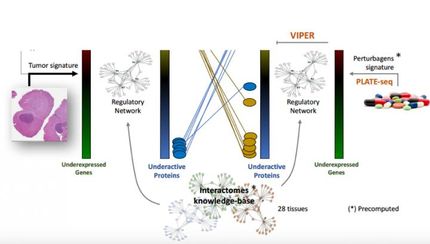Tarceva helps patients with genetically distinct form of lung cancer live longer
Phase II study points to importance of EGFR biomarker to identify patients who can gain exceptional survival benefits
Advertisement
New data show that first-line treatment with Tarceva (erlotinib) delivered exceptional survival benefits in patients with advanced lung adenocarcinoma (a form of non small cell lung cancer) with epidermal growth factor receptor (EGFR) activating mutations. Randomized Phase II trial of erlotinib (E) alone or in combination with carboplatin/paclitaxel (CP) in never or light former smokers with advanced lung adenocarcinoma: CALGB-30406. Jänne, PA et al. Oral abstract presentation at ASCO. The phase II data show that Tarceva plus chemotherapy resulted in median overall survival of 39 months and Tarceva alone gave a median survival of 31.3 months. Patients with advanced lung cancer typically survive for only about 12 months with chemotherapy alone.
“The exceptional survival benefits seen when Tarceva is given to patients with advanced lung cancer that has EGFR activating mutations suggest that we may be able to make further progress against this devastating disease.” said Dr. Luis Paz-Ares, M.D., Hospital Universitario Virgen del Rocío, Seville, Spain and lead author of a recent pooled analysis of clinical outcomes in patients with NSCLC with EGFR activating mutations.
Two prospective phase III studies of Tarceva in NSCLC with EGFR activating mutations are ongoing. The EURTAC trial involves patients in Spain, Italy and France and the OPTIMAL trial involves patients in China. Both EURTAC and OPTIMAL are evaluating the efficacy of first-line Tarceva versus chemotherapy (platinum-based and gemcitabine/carboplatin, respectively) in patients with advanced NSCLC with EGFR activating mutations who have not received prior chemotherapy. Efficacy results from the OPTIMAL trial are expected in the second half of 2010 and final results of the EURTAC trial in 2011.























































